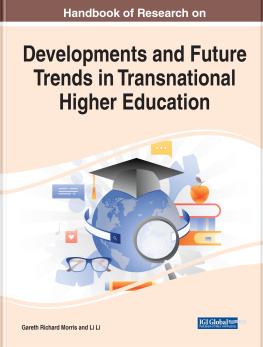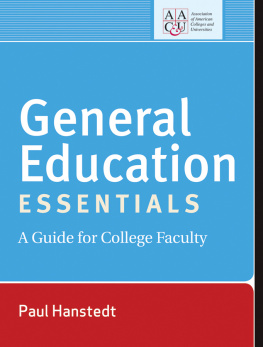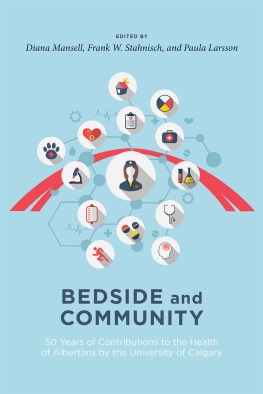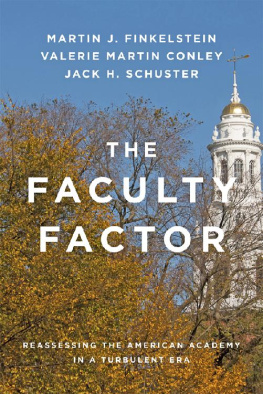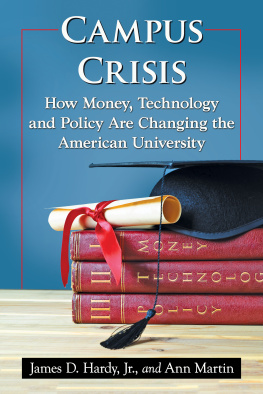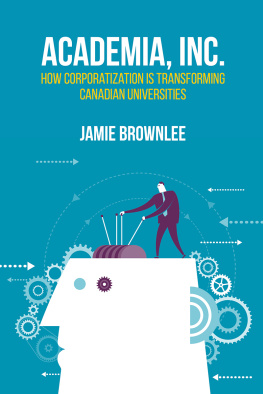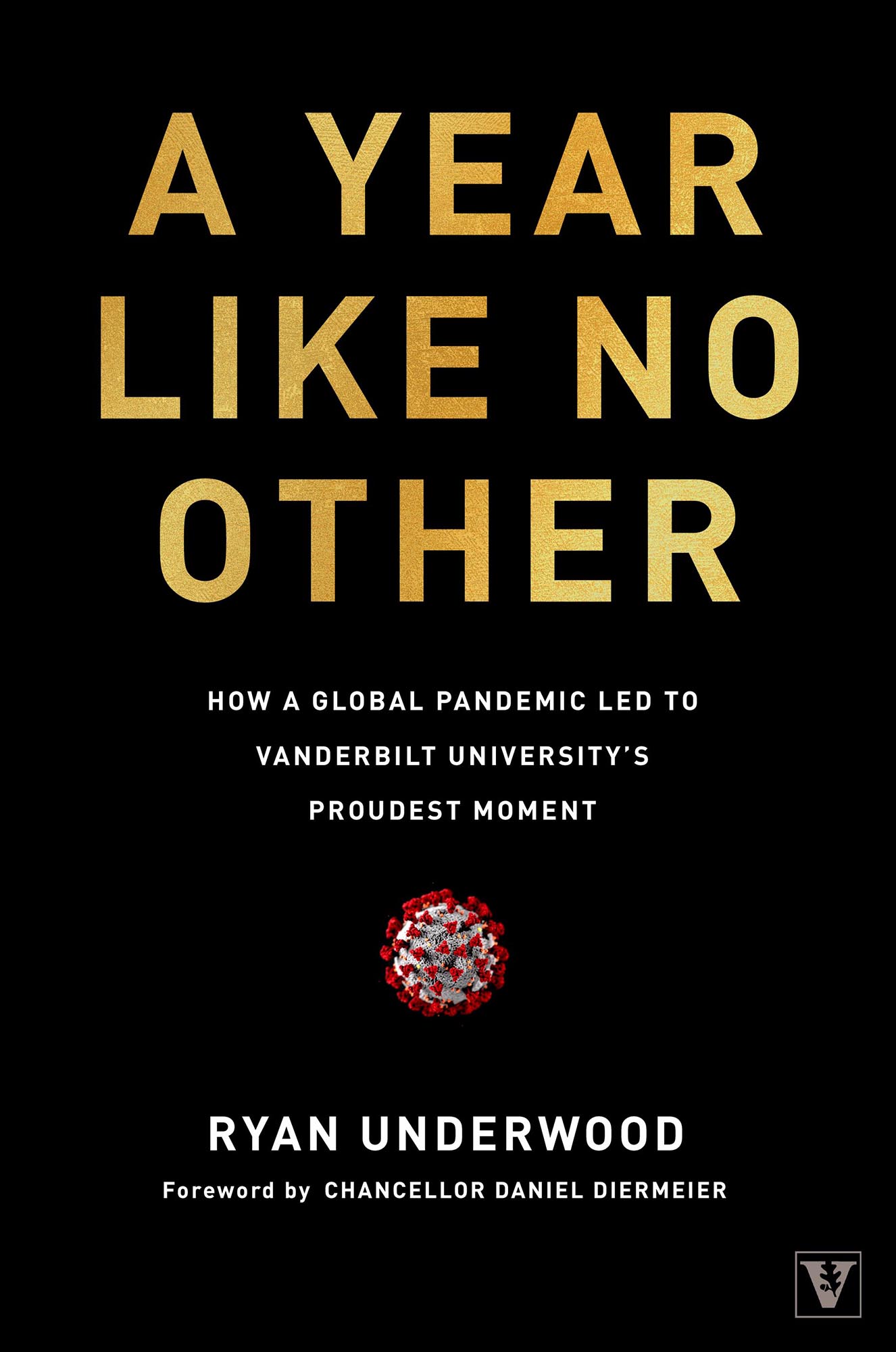Contents
Guide
A Year Like No Other
How a Global Pandemic Led to Vanderbilt Universitys Proudest Moment
Ryan Underwood
Foreword by Chancellor Daniel Diermeier
A Year Like No Other
How a Global Pandemic Led to Vanderbilt Universitys Proudest Moment
2021 Vanderbilt University
All Rights Reserved.
Unless otherwise noted, material for this book came from interviews conducted between December 2020 and February 2021, as well as from minutes taken at Vanderbilt Board of Trust meetings held throughout 2020.
No part of this book shall be reproduced or transmitted in any form or by any means, electronic, mechanical, magnetic, and photographic, including photocopying, recording or by any information storage and retrieval system, without prior written permission of the publisher.
No patent liability is assumed with respect to the use of the information contained herein. Although every precaution has been taken in the preparation of this book, the publisher and author assume no responsibility for errors or omissions. Neither is any liability assumed for damages resulting from the use of the information contained herein.
Published by Forefront Books.
Cover Design by Bruce Gore, Gore Studio Inc.
Interior Design by Bill Kersey, KerseyGraphics
Jacket art: Corona Virus Image Courtesy of the Centers for Disease Control
ISBN: 978-1-63763-003-7 print
ISBN: 978-1-63763-004-4 e-book
FOREWORD
I n July 2020, when I officially began my role as Vanderbilts ninth chancellor, we were in the eye of a perfect storm.
Three crises had been stirring in unison: that of public health, as the COVID-19 virus unrelentingly took lives and upended livelihoods around the world; the resulting financial downturn, which over the year would lead to the loss of more than 650,000 jobs in higher education alone; and the moral crisis in our nation, evident in the bitter polarization of American politics and the renewed urgency to fight for racial justice. Each crisis alone would have required all our efforts. Daunting, important, and urgent, we needed to address them all at once.
Between February and April 2020, Vanderbilts endowment dropped nearly 20 percent, a significant loss at any time, but felt more acutely due to the growing expenses for technology and personal protective equipment, accompanied by lost revenue across the board.
Concurrently, students had left our campus in a rush. Graduate students had to immediately adapt to remote strategies to complete their studies and dissertation projects. Postdoctoral fellows swiftly reenvisioned their approaches where possible. Student-athletes lived with uncertainty about when and how their next competition would occurand about what a prolonged break could mean for their success on and off the field.
Life-changing decisions had to be made, and in rapid succession, but little clarity existedeven in regard to the disease itself. The CDCs initial hypothesis that masks did not stop the spread of COVID-19 was revised as evidence evolved, and masks were deemed a critical, often mandatory, precaution. The members of Vanderbilts Plant Operations team, as well as faculty and academic leaders, were losing sleep over the possibility that the virus could travel through heating and air conditioning systems, which would then make classrooms irrepressible hotbeds for infection. Thankfully, this particular nightmare did not come to pass.
Underlying the profound uncertainty was yet another loss: the gradual disintegration of the rhythm of university life. From the moment Vanderbilts in-person commencement was rescheduled for the class of 2020, the familiar pacing of milestones was gonethe excitement of move-in day in August, fall football games with packed stadiums, the final academic push before the holidays, the buildup to spring break, and graduation in May.
The operational and financial challenges were daunting. Our budgets, the result of months-long processes, had to be redone in mere weeks. The logistics around storing thousands of students personal belongingsfrom clothing to bicyclesbecame an uncharted priority. The admissions process was suddenly subject to new calendars and considerations, including the cancellation of all in-person campus visits and the rapid-fire development of a personalized virtual tour. As buildings were locked up, communications increased to relay new expectations and timelines. The summer months, when faculty would usually be able to focus on their research, were suddenly crammed full of virtual town halls about hybrid teaching, online resources, and classroom protocols.
This disrupted patternand an overall landscape of immense uncertaintywas what I stepped into on July 1, 2020. It was an unusual first day for many reasons, but the work had started earlier.
Under normal circumstances, the late spring and early summer would have included a gradual wind-down from my previous role as provost at University of Chicago, paired with information-gathering phases and meetings with key Vanderbilt stakeholders. Instead, the transitional period was marked with prolonged meetings in the universitys virtual war room, where I witnessed the incredible work being done by Interim Chancellor and Provost Susan R. Wente, Vice Chancellor Eric Kopstain, and other leaders to address some of the most monumental questions that Vanderbilt had ever faced.
It was not lost on my friends and former colleagues that I had taken the helm at Vanderbilt at an alarmingly unprecedented time. Indeed, I received messages of concernthey wondered how I was faring, if I missed Chicago, if I wished the timing had been different.
My answer to them was, and remains the same to this day: if one is privileged enough to lead such a distinguished institution as Vanderbilt, its even better to do so when the stakes are high. Better to be prime minister of Britain from 1940 to 1945 than from 1950 to 1955.
Crises can bring out the best in us, and they leave lasting memories. It is during these moments that humans often reach their full potential and transform the most profound challenges into their proudest moment.
In that season at Vanderbilt, little was known and little was certain. So we looked to our mission to guide us. We knew we would do whatever we could to advance the interdisciplinary, pathbreaking research that was now more important than ever. And we would find a way to foster the residential education that brought students together and enabled them to learn from peers with different perspectives, to challenge their points of view, and to experience firsthand what it means to do what is neededeven if that path defies simplicity or easy answers.
This very mission was at the forefront of Founders Walk, a rite of passage for first-year students at the start of the fall semester. In August 2020, for the first time in Vanderbilts history, students engaged in the event virtuallywhether from their dorm rooms or their homes away from campus. Speaking to a video camera, I told them that our decision to keep the doors to our campus open and to invite students and faculty back for in-person learning was difficult. The path ahead would not be easy.
In fact, throughout the lead-up to the fall semester, I was often reminded of John F. Kennedys iconic speech from 1962, made just after his visit to NASAs newly opened space center in Houston. To a crowd of more than thirty thousand people at Rice University, including many students, he said, we choose to go to the moon not because [it is] easy, but because [it is] hard. Because the goal will serve to organize and measure the best of our energies and skills, because that challenge is one that we are willing to accept, one that we are unwilling to postpone, and one which we intend to win.


